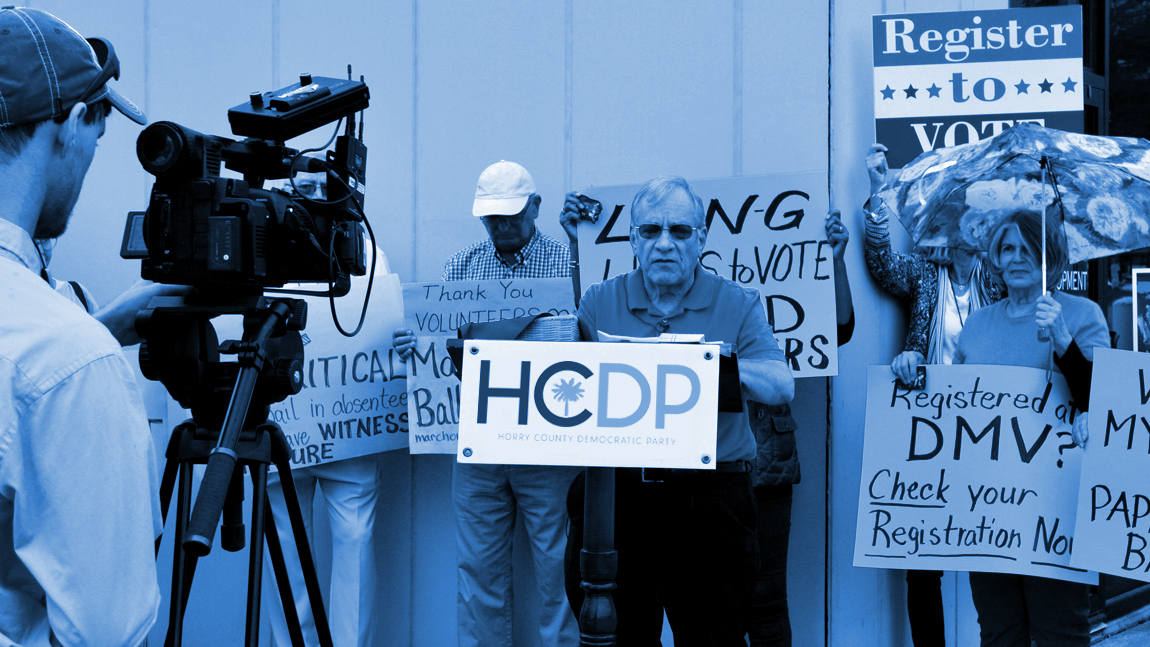By the time the 2020 Presidential Elections come around, South Carolina will be using a new voting system that allows paper ballots to be used as a means of verifying the actual votes that have been cast. This system will replace the one that has been in place since 2004, which allowed voters to use a touchscreen to cast their votes without having a paper backup to ensure their vote was properly cast.
This system, known as Direct Recording Electronic system, or DRE, has been criticized for not providing a paper ballot to use as a means of verification. While South Carolina is one of thirty states to use this system, it is one of only ten states that does not require a paper trail to back up their system.
This is about to change.
Voters will still be allowed to use the touchscreen system, with which they are familiar, but instead of having their vote recorded only on the computer, they will receive a print out that is inserted into a scanner. This system records their vote while maintaining a paper copy in case there is an issue with votes being contested.
During the 2016 election, despite winning the Electoral College, Donald Trump alleged voter fraud when it was clear he did not win the popular vote. There was also the potential of computer hackers infiltrating the system to alter votes, such as what occurred in Florida.
By storing the votes separately, and having a paper back-up, this will ensure all votes will be counted properly. And, by providing a computer printout, South Carolina is also avoiding the hanging chad fiasco that decided the 2000 presidential election.
Voter participation, or lack thereof, has become a serious issue. More states are trying new ways to ensure voter verification as well as providing a new way for voters to participate. Starting with the 2020 Democratic Presidential Caucus, Iowa will allow voters to cast their ballots on-line or through the telephone. They see this as the future of the Electoral process.
Is there a Downside?
Well, there is the $51 million cost of replacing existing machines. Fortunately, lawmakers have already put aside $40 million to pay for it, but one has to question the wisdom of this expense if no evidence of voter fraud exists.
Also of concern is the possibility that the new voting system is susceptible to hacking. Like all electronic systems this is a valid concern, especially since it has already been shown to be an issue in Florida. Horry County Democratic Chairman Don Kohn has indicated that each voter machine is independent, and not connected to a network, which would facilitate hacking. The fact that the machines currently in use provide no paper trail, and thus are more susceptible to hacking, this is the prime motivation behind getting this new system up and running as soon as possible.
Another issue is the time required to adequately train poll workers on the new system. Like any new technology, there are bound to be glitches. Will there be assistance available should issues arise during the voting process?
With the system set to debut in time for the 2020 primaries, the window to address these possible problems is getting closer. Is there enough time?
Finally, there is the voting process, itself. The machines, provided by Electronic Systems and Software (ES&S) uses a process called ExpressVote to tabulate results. This system has a “permission to cheat” feature. This is intended to allow the voter to correct an error on their ballot, but can also be used to alter their choices after the fact. For this reason, there are valid concerns in adopting this system.
Also at odds is the fact that the Executive Director of the South Carolina Election Commission, Marci Andino, served on the advisory board of ES&S. While she has since stepped down from this position, there are those who are suggesting a conflict of interest in the selection of this company for such a large price tag.
With all of these concerns, is this the right time to adopt a new system? True, there are flaws with the current system, but are these flaws any worse than the system the state is adopting?
Further research is indeed necessary to weigh the pros and cons of this important issue.






